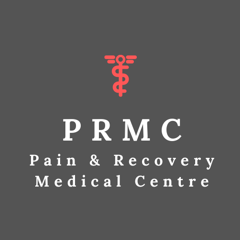Substance Dependence Treatment Program
Treatments PRMC may use or recommend in treating substance dependence
Medications
Buprenorphine
Buprenorphine is the mainstay medication of our pain treatment program. It was created specifically as a chronic pain medication by a European pharmaceutical company in the 1960s. It has been in continuous use since that time. Buprenorphine has proven far superior to short-acting opiates for this purpose because it has a remarkable combination of beneficial characteristics possessed by no other pain reliever. Tens of thousands of patients in Europe have had chronic pain well controlled for up to 50 years without significant adverse effects from long-term use. This strong medication has not seen wide use in the USA for pain control because it was not heavily marketed to physicians like short acting opiates were. This heavy marketing was one of the causes of our current opiate addiction epidemic, and is the basis for thousands of lawsuits against pharmaceutical companies. This strong medication is a powerful and a long-lasting pain reliever. Narcotic pain relievers are compared to morphine using the Morphine Milligram Equivalent Scale. The pain relief produced by 1 mg of this medication is equivalent to the pain relief from 60 to 100 mg of morphine. Because it is a partial stimulator of the opiate receptors instead of fully stimulating, as other opiate pain relievers do, opiate tolerance stabilizes at a constant level. Because of this, patients who take it on a daily basis will continue to get the same amount of pain relief without the need to periodically increase the dose to get the same relief as we see in patients on short acting, full-stimulating opiates. This strong medication is a controlled substance. It can be harmful if taken by someone who has not build up tolerance through opiate use. It can be extremely harmful, or even fatal if taken by a child. It is important that your medication be kept in a lock box or safe so it will not be stolen or taken by anyone except the patient for whom it is prescribed. To decrease the risk of misuse and diversion, Pennsylvania State law requires that this medication be prescribed electronically. Telephone and written prescriptions are no longer permissible.
We do not prescribe any other controlled substances.
Other medications
Many other medications may be employed to treat the damage done to body and mind by long-term opiate dependence. Your dependence treatment specialist will discuss these other medications and may prescribe them as the need arises.
The state of Pennsylvania authorizes use of medical marijuana to treat opioid dependence. Read about our medical marijuana program here.
Counseling
Counseling and education are important aspects of your treatment. All PRMC sessions include counseling. Additional specialized counseling may be recommended if your PRMC dependence treatment specialist feels it would be helpful.
Urine Testing
One of the challenges of treating opiate dependence with mainstay treatment medication is achieving effective levels of medication in the body. This is monitored by measuring mainstay treatment medicine levels in the urine to ensure enough medication is entering the bloodstream for good results. Urine is also tested for other drugs in the system. Random urine testing is done on all PRMC patients. Intermittently, urine sample collection will be supervised to discourage sample falsification.
Urine drug screening is included as part of your monthly program fee. If your urine sample is sent to the reference laboratory to be analyzed for drug levels, you will be billed directly by the laboratory.
Mind-body Therapy
Mind-body therapies use the mind’s ability to change functions and feelings controlled by the body’s automatic processes when these processes are causing problems. These therapies can include meditation, mindfulness techniques, relaxation training, biofeedback, therapeutic touch, reiki and others.
Dietary Therapies
Diet plays a significant role in health and recovery. Your provider will discuss dietary changes If they are likely to help.
The fee for The PRMC Substance Dependence Treatment Program is $275 / 4 weeks. We do not accept insurance company payments. We can provide you a receipt with the necessary codes to submit to your insurance company for reimbursement.
